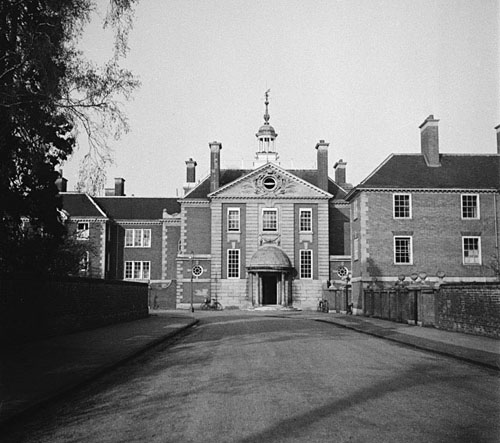LILIAN HAMILTON JEFFERY1915-1986 5. Lady Margaret Hall, Oxford Lady Margaret Hall, Oxford Demobilized as a Section Officer in January 1946, she still had a year of her Newnham Research Fellowship in hand. But Cambridge was now less congenial. The ethos of Newnham, under its new Principal, seemed more practical, less sympathetic to pure scholarship than it had been, and it was clear that Oxford, with a strong recent tradition of integrating archaeological and epigraphic work into the study of Greek civilization, was a more logical base for a large-scale epigraphic work. In 1961, Anne named five Oxford scholars, Tod, Beazley, Wade-Gery, Meiggs, and Dunbabin, as having, in their various ways, been particularly important for her work. The opportunity for a move was mediated by Dorothy Garrod, Fellow of Newnham and prominent in air photography, who had developed ties with Lady Margaret Hall during the war. In the dour post-war years, LMH, particularly perhaps Lucy Sutherland as Principal, retained a respect for what was cheerfully described as 'totally useless scholarship', and Anne went there as Research Fellow in autumn 1946, remaining there, much loved, up till and beyond her retirement. In 1952, in order to maintain her link with the college after the expiry of her Research Fellowship, she was elected to a part-time Tutorship in Ancient History. It was recognized that she would not cover the whole 'Greats' field. The Romans were out of the question, and she successfully asserted her incompetence to deal with fourth-century Greece. On the other hand, she could offer Greek Sculpture, in which available teaching was always scarce, and, in order to make up the minimum four hours a week of teaching required of her, she also, from time to time, taught Classical set texts to first-year students in English or History. In 1953 she was elected to an Official Fellowship, and after 1959 she went on to a full tutorial load. The teaching was found congenial on both sides. She took infinite trouble to build her pupils' confidence in their own abilities and ideas, and her gentle firmness often inspired great devotion. Teaching for the Diploma in Classical Archaeology gave her the stray specialized pupil of high quality. With the exception of the editorship of the Annual of the British School at Athens (1955-61), she did not do much administration, not through unwillingness or incompetence; others had more of a taste for it. With this freedom and the fortunate specialism of her teaching range, she was able to control her own development. | |||||
|---|---|---|---|---|---|
| Wartime Service | Contents | Poinikastas Home | Bayrakli | ||